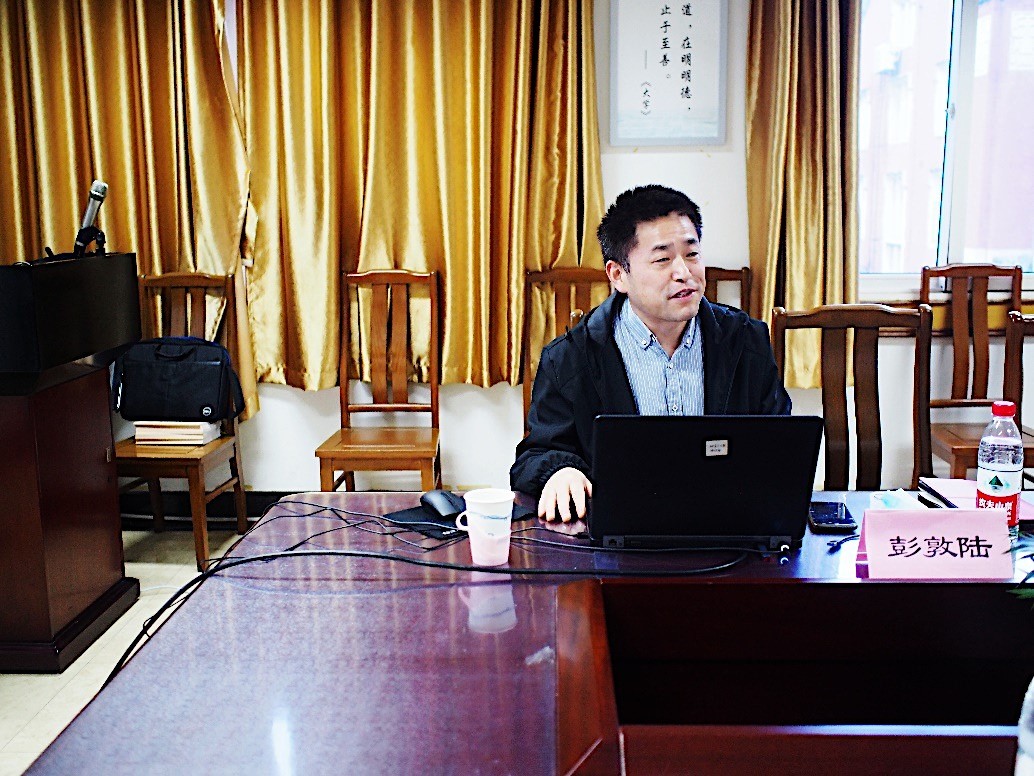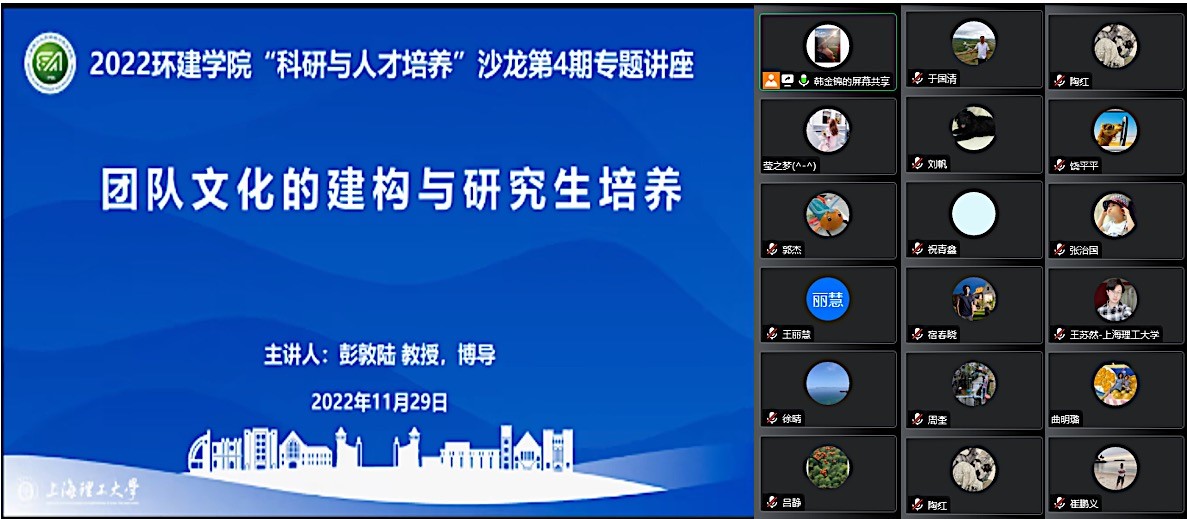Focusing on the Comprehensive Competence of Supervisor
On November 29th, the School of Environment and Architecture successfully held the 4th salon of the 2022 series of Research and Talent Cultivation, in which Professor Peng Dunlu, Vice Dean of the School of Optoelectronic Information and Computer Engineering, was invited to give a presentation on the theme of Construction of Team Culture and Postgraduate Training.Nearly 60 teachers from the School of Environmental Architecture attended the event online and offline, which was hosted by the School's Vice President Wang Lihui.
Professor Peng Dunlu leads the New Computing Paradigm Research Team in the School of Optoelectronics, and was awarded the Excellent Guiding Team by Shanghai University of Technology in 2021.In the course of 16 years of postgraduate training, he has in-depth thinking and valuable experience in building the culture of the guiding team and the goals and paths of postgraduate training.
Professor Peng Dunlu shared three aspects, including Why is it necessary to build a team culture for postgraduate training, How to build a team culture conducive to postgraduate training and Building a team culture and the effectiveness of postgraduate training.First of all, Professor Peng emphasized that the three identities between postgraduates and their supervisors are the cornerstones of building a team culture of a community of destiny between teachers and students.Secondly, he introduced the key points of his team culture in the five aspects of loyalty, ambition, down-to-earth, gratitude and closed-loop thinking, and shared the introduction of traditional Chinese culture in the construction of team culture, such as no one can stand in the world without loyalty and trust and fish know the grace of water, which is the source of happiness. Thirdly, based on the above-mentioned team culture, Professor Peng emphasized the cultivation goal of high-quality talents with a heart for the motherland, physically and mentally healthy, solid foundation, and capable of amphibious development for postgraduates, and shared the specific paths taken by his guidance team to achieve this cultivation goal through vivid and detailed cultivation examples, including organizing team activities to strengthen the construction of ideology and politics, participating in discussion classes to enhance postgraduates’ academic awareness, publishing research papers to cultivate comprehensive quality, standardizing enterprise internship to cultivate team awareness, and participating in research projects to enhance postgraduates' research ability.
Professor Peng Dunlu's lecture lasted for more than 2 hours, and was focused on the postgraduate training of the Guiding Team, with its high-level training ideas, theory and practice, and the in-depth and practical postgraduate training path. The content of the lecture aroused widespread resonance and positive interaction among the participating teachers, and Peng's selfless sharing brought them a lot of inspiration and reference, and the participating teachers expressed that they had benefited greatly. Vice President Wang Lihui expressed her heartfelt gratitude to Professor Peng for preparing this report on postgraduate training in the midst of his busy schedule.
The success of this lecture is of great significance to enhance the comprehensive ability of postgraduate training of teachers in the School of Environment and Architecture, and help the teachers in the School to train more builders and successors with a sense of home and country for the development of the industry and society.






